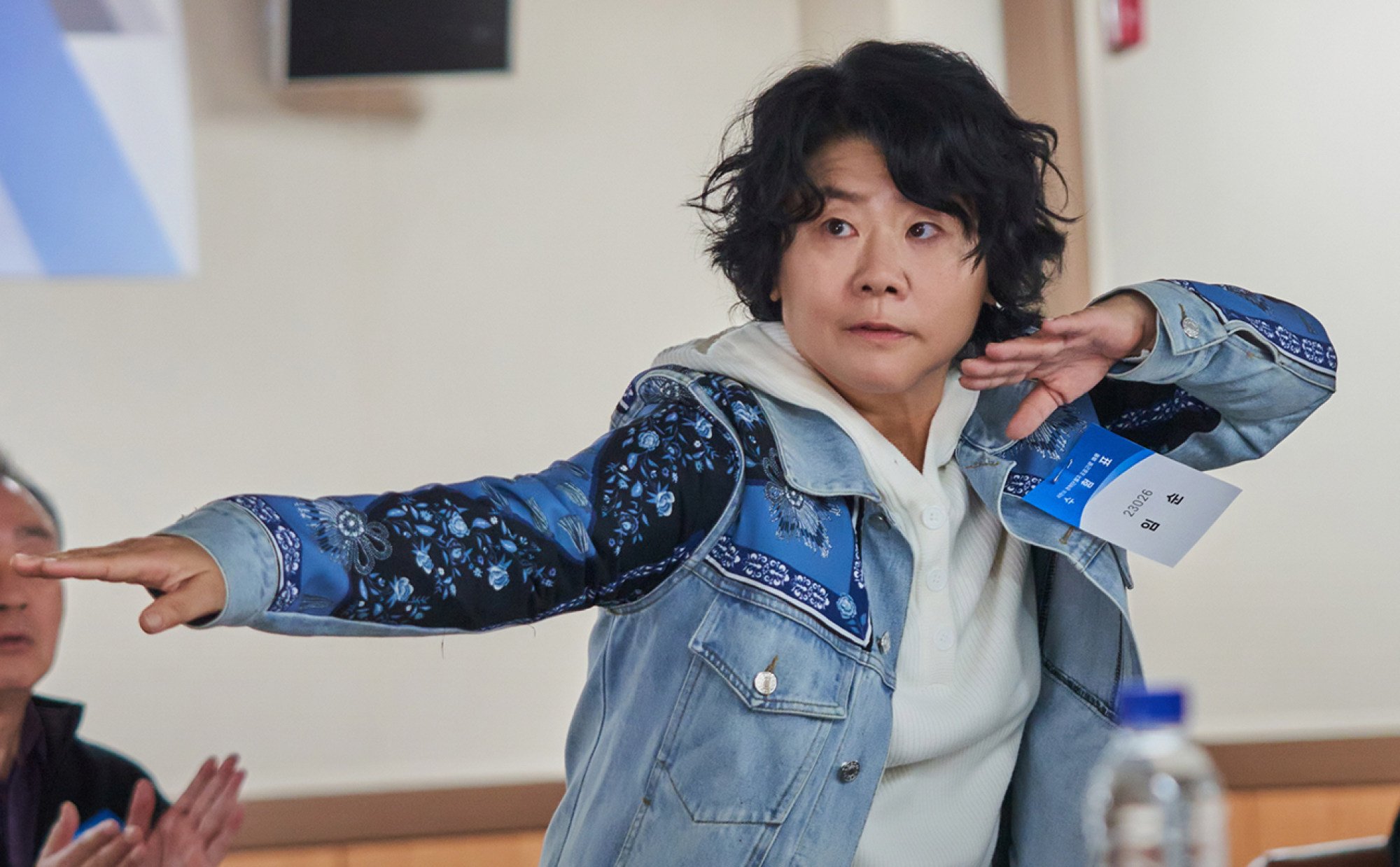Mi-jin as played by the younger Jung is a desperate jobseeker who has been trying to land decent employment for seven years. She lives with her working-class parents and her mother’s patience has long worn thin.
Owing to a snafu at her latest failed job interview, during which another woman called Lee Mi-jin was a successful applicant, her mother now believes that the search is finally over. Bereft, Mi-jin does not have the heart or courage to tell her the truth.
Now even more desperate, she turns to the man who gave her the business card, who promises her he can get her a good job for a fee. She forks over the cash and the man gets up to leave.

He chases down and catches the man, but this does not solve Mi-jin’s latest problem, as the money, which she secretly took out of her mother’s savings, has already been transferred elsewhere.
Mi-jin’s guilt intensifies when she returns home to congratulatory gifts from her parents. That night, she bares her soul in the yard to a stray cat. When the cat jumps into one of her mother’s large clay pots, she hops in after it and loses consciousness.
In the cold light of day, she wakes up in bed and begins her morning routine, which includes squeezing herself between her parents on the couch to watch television. There is only one problem – Mi-jin now looks like a middle-aged woman (played by Lee).
Confusion and shenanigans naturally ensue but once the chaos settles, Mi-jin starts to learn the contours of her condition.

During the daytime, her body transforms into this older-looking woman. The moment night falls, she returns to her normal self. It is a difficult reality to hide from the parents with whom she lives, but with no other recourse available to her, she finds a way.
She does discover one advantage of her condition, in that it allows her to enter a special programme for older jobseekers. After acing the interview, she gets a job at the prosecutor’s office in her town, working under the alias Im Soon.
Before long, Ji-ung transfers to her town from Seoul, as he secretly tries to solve a series of disappearances, which happens to include that of Mi-jin’s long-lost aunt.

But where Miss Granny, which features an elderly woman magically returning to her youth in the present day, playfully blurs the lines between social divides, this show is obsessed with sticking to binaries.
The show constantly explores black-and-white divides, whether they are between night and day, young and old, right and wrong or, in the case of workaholic Ji-ung, Jekyll and Hyde, and frequently illustrates them through split-screen editing.
This is a world which has no room for nuance. Day turns instantly to night, as we see when Soon runs into a cafe. Once the police officer chasing her has arrived, darkness has fully descended on the city.
Admittedly, this is reflective of a society built upon rigid foundations that people find difficult to navigate.

Since this is a 16-episode prime-time K-drama, the workplace body-transformation fantasy concept is paired with a few other common tropes to keep things moving along.
The presence of the hunky Choi Jin-hyuk suggests some Cinderella-style romance may be on the cards, while the prosecutors’ office setting means good old-fashioned crime.
Sadly, Miss Night and Day goes for the most conventional kind of K-drama criminal there is: a serial killer.
It may have been more fitting for the show to dive into fraud in a more comprehensive fashion, much like this year’s surprisingly effective South Korean crime film Citizen of a Kind. But, given the show’s broad strokes and stark binaries, perhaps that was too much to hope for.
Miss Night and Day is streaming on Netflix.

